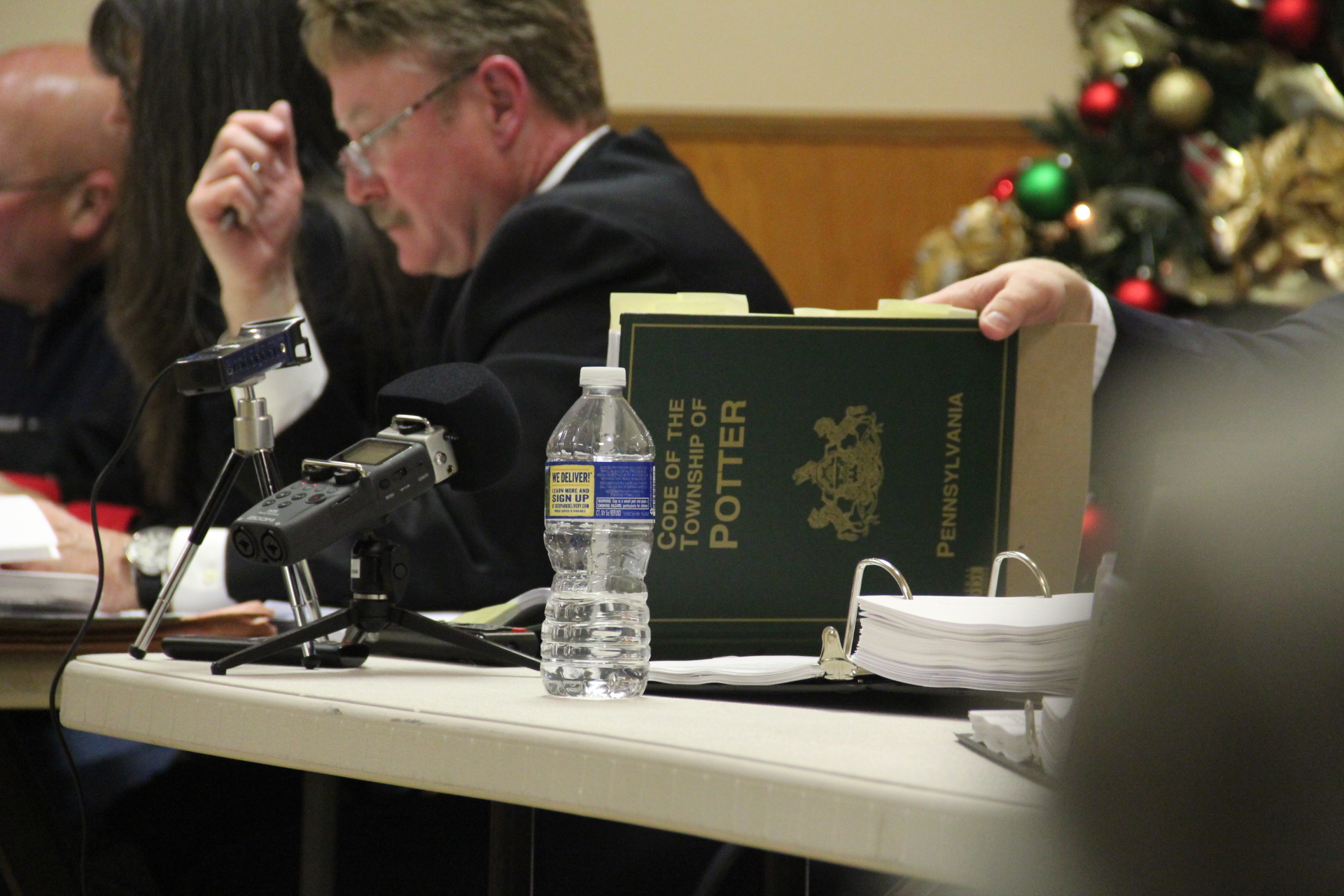On Tuesday night, township supervisors in Potter Township, about 30 miles northwest of Pittsburgh, heard testimony on the impacts that Shell’s ethane cracker might have on their community.
The supervisors held a hearing on the company’s request for a conditional use permit from the township, a necessary step in the company’s plan to build a multi-billion dollar chemical plant on the banks of the Ohio River. The plant would make plastic out of the region’s natural gas.
Potter Township supervisors asked company officials about the lighting, traffic and noise the cracker is expected to create. Township Supervisor Earl Shamp asked Shell External Affairs Manager Chris Heitman whether the plant would give off odors.
Heitman said that unlike other ethane crackers on the Gulf Coast, the Potter Township site won’t emit many odors because it will use natural gas—not crude oil—as a base ingredient. Crude oil has a higher sulfur content than natural gas, he said.
“Most of the stuff used in the facility is odorless,” Heitman said. “I think the odor question comes [more] to the water treatment facility. On very rare occasions, there could be a very small smell from a bio-treatment facility.”
Company spokesman Michael Marr also said the plant will use state-of-the-art equipment to cut down on light pollution. “We use downward facing LED lights, at greater expense to Shell. That limits the amount of glare that would be seen in adjacent areas,” Marr said.
Bob Schmetzer, borough council president of nearby South Heights, said he was worried that Shell has marked his community in its permit as a transit corridor for 100 trucks a day.
“We’re going to be impacted by the truck traffic,” he said. “They’re running all their trucks through our town. It’s a residential community; they’re turning it into an industrial zone.”
Environmental groups have asked the township to extend the review process and hold more hearings on the plant’s impact to the environment before granting the conditional use permit. The plant is expected to be one of the largest sources of smog-inducing chemicals in the region. Because the Pittsburgh region doesn’t meet federal clean air standards, Shell will buy air pollution offsets from nearby facilities that are eliminating or reducing air pollution.
The cracker, which would create 6,000 construction jobs and 600 permanent ones, is backed by many local labor unions. Steve Mazza of the local council of carpenters was at Tuesday’s meeting. He says he’s looking forward to the jobs that the plant will create.
“It will impact the community in certain ways, but also we have to worry about all our jobs going out of the country,” he said. “What are we going to have here if we keep sending our manufacturing jobs outside the country?”
A state Department of Environmental Protection hearing on the plant’s air and water permits is scheduled for Thursday night.



